
 Flash News
Flash News
Video/ Kodrat e Dukatit përfshihen nga flakët, zjarri përhapet me shpejtësi mbi fshat
Tragjedi në Teksas: 59 të vdekur dhe 27 vajza ende të zhdukura pas përmbytjeve shkatërruese
VIDEO/ Zbardhet përleshja mes bandave në Greqi, 12 të arrestuar, mes tyre edhe shqiptarë
Jepte para me fajde dhe kanoste njerëzit, arrestohet nënkomisari në Elbasan (EMRI)
EMRI/ Drogë dhe armë pa leje, arrestohet i riu në Durrës, nën hetim bashkëpunëtori
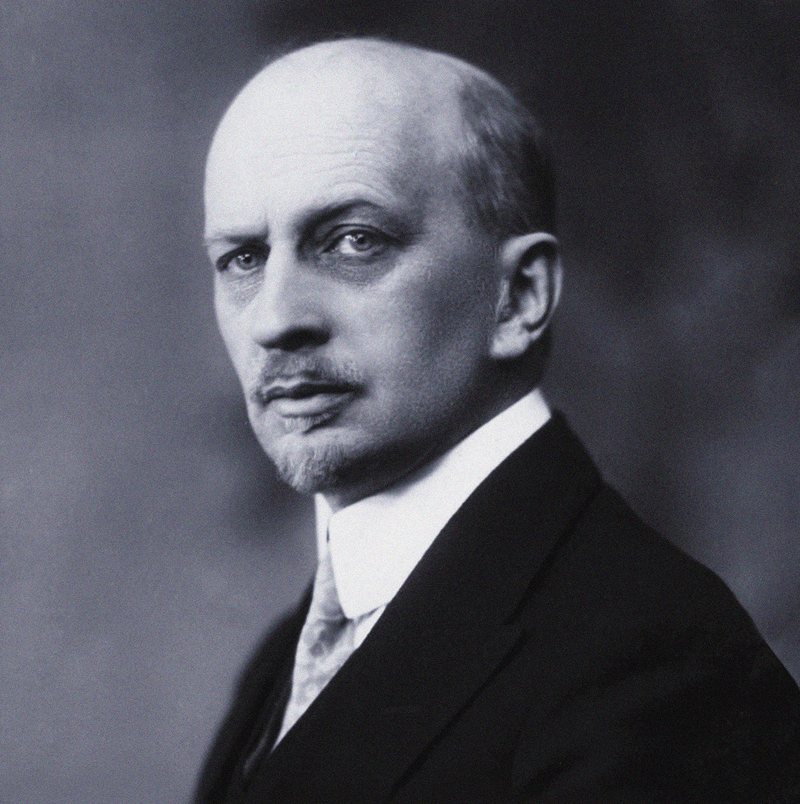
This is an expanded version of Timothy Snyder’s essay “God Is a Russian” in the April 5, 2018 issue of The New York Review.
Të fundit


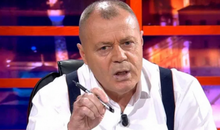
Musk me parti politike, Nano: Reagim emocional pas konfliktit me Trump
6 Korrik 2025, 21:20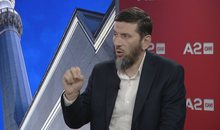
Teologu: Pas idesë së Ramës për shtetin bektashi në Shqipëri, fshihet Izraeli
6 Korrik 2025, 20:57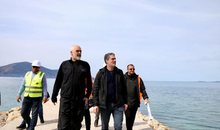
Krahason Parisin, Londrën, New York-un me Vlorën, retorika e Ramës pa standarde
6 Korrik 2025, 20:35
Mjeti del nga rruga, humb jetën shoferi në Kukës
6 Korrik 2025, 20:07
Cila është marrëveshja e mundshme për pengjet në Gaza dhe armëpushimin
6 Korrik 2025, 19:47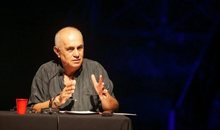

Pse Ronaldo mungoi në varrimin e Diogo Jotas, sqaron motra e ikonës së futbollit
6 Korrik 2025, 18:59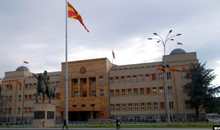
Punësime masive në administratën maqedonase përpara zgjedhjeve
6 Korrik 2025, 18:37
Pas 6 ditësh në flakë e tym toksik, shuhet zjarri në landfillin e Elbasanit
6 Korrik 2025, 18:13

Shqipëria në shitje dhe blerja nga Jared Kushner
6 Korrik 2025, 17:17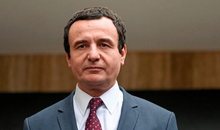
Kërcënimi me bombë në Kuvend, reagon Kurti: Luftë aktive hibride nga Serbia
6 Korrik 2025, 16:55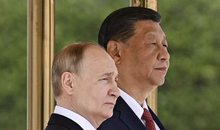

Pas përplasjes me Trump, Musk thotë se po formon një parti të re politike
6 Korrik 2025, 16:14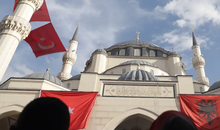
Turqia rrit ndikimin politik në Ballkanin Perëndimor
6 Korrik 2025, 15:48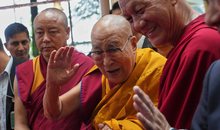
Dalai Lama mbush 90 vjeç mes adhurimi global
6 Korrik 2025, 15:27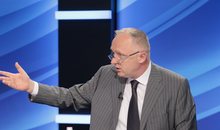
Taksë për beqarët apo për ata që nuk ikin
6 Korrik 2025, 15:04
Toka më larg Diellit, por vapa përvëluese! Pse ndodh kjo?
6 Korrik 2025, 14:51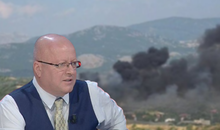
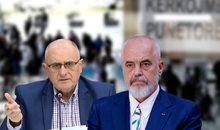
Eksodi i të rinjve dhe karnavalet politike të Ramës!
6 Korrik 2025, 14:16

Vapa mbush spitalet! Fluks pacientësh në QSUT, çfarë këshillojnë mjekët
6 Korrik 2025, 13:26
Shqipëria në zjarr, Rama në det (VIDEO)
6 Korrik 2025, 13:04
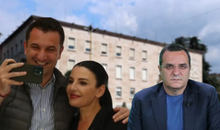
Balluku po bëhet “Veliaj 2”
6 Korrik 2025, 12:16
Jepte para me fajde dhe kanoste njerëzit, arrestohet nënkomisari në Elbasan (EMRI)
6 Korrik 2025, 11:50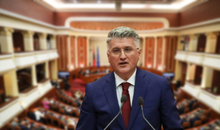
Satira e Gjekmarkajt: Kronika e Kuvendit nis mandatin e dytë! Çfarë vjen pas verës
6 Korrik 2025, 11:38
EMRI/ Drogë dhe armë pa leje, arrestohet i riu në Durrës, nën hetim bashkëpunëtori
6 Korrik 2025, 11:20

Pse nuk duhet të bëjmë dush me ujë të ftohtë gjatë valës së të nxehtit?
6 Korrik 2025, 10:39
Alarmi i zjarreve në vend, 6 vatra ende aktive, si paraqitet situata deri tani
6 Korrik 2025, 10:10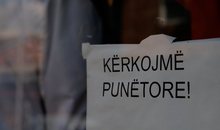
Vendi humb fuqinë punëtore, rënie dramatike e popullsisë në moshë pune
6 Korrik 2025, 09:55
Vietnami dhe SHBA nënshkruajnë një marrëveshje doganore
6 Korrik 2025, 09:39
I dënuar në Zvicër për trafik droge, arrestohet në Qafë Thanë maqedonasi (EMRI)
6 Korrik 2025, 09:24
Mbytet në pishinën e familjes 2 vjeçarja në Kosovë
6 Korrik 2025, 09:11
Shqipëria, si laborator i migracionit
6 Korrik 2025, 08:54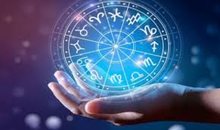
Horoskopi për ditën e sotme, çfarë kanë parashikuar yjet për secilën shenjë
6 Korrik 2025, 08:37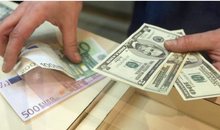
Këmbimi valutor 6 korrik, me sa shiten e blihen sot monedhat e huaja
6 Korrik 2025, 08:16
Temperaturat deri në 40 gradë! Parashikimi i motit për ditën e sotme
6 Korrik 2025, 08:00
Posta e mëngjesit/ Me 2 rreshta: Çfarë pati rëndësi dje në Shqipëri
6 Korrik 2025, 07:45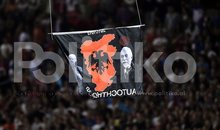
Kur 90 minuta zgjojnë dekada histori: Shqipëri – Serbi, përtej futbollit
5 Korrik 2025, 21:51
Jo vetëm trupin, noti ndihmon edhe trurin
5 Korrik 2025, 21:02
"Kujdes me ujin", Alimehmeti paralajmëron për rreziqet shëndetësore të verës
5 Korrik 2025, 20:39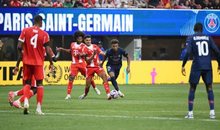
PSG mund 2-0 Bayernin e Mynihut, shkon në gjysmëfinalen e Botërorit të Klubeve
5 Korrik 2025, 20:19
Klaudia Pepa tregon amanetin e babait: Tha ‘bëhu nënë sa më shpejt’
5 Korrik 2025, 19:50
Përplasen dy automjete në aksin Elbasan-Peqin, lëndohen shoferët
5 Korrik 2025, 19:26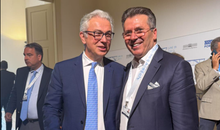

Kuko e PS: Çfarë ka Zelenskyy më shumë se Zegjineja?
5 Korrik 2025, 18:45
Shqiptari rrezikon të mbytet në ujërat e lumit Piave në Itali
5 Korrik 2025, 18:22
Paqe fiskale, por me kosto
5 Korrik 2025, 18:00
Evazioni fiskal i ‘Bankers’, lihet në burg CEO kinez dhe ish-drejtori
5 Korrik 2025, 17:39
Kyle Walker i bashkohet klubit anglez me kontratë dyvjeçare
5 Korrik 2025, 17:20
Përplasen dy makina në aksin Sarandë-Delvinë, 4 të plagosur
5 Korrik 2025, 17:05
Gjesti prekës! Liverpool do t’i paguajë rrogën familjes së Jota-s deri në vitin 2027
5 Korrik 2025, 16:45
Shenjat e horoskopit që tradhtojnë më shpesh
5 Korrik 2025, 16:25

“I kërkova unë shkarkimet”, Dredha tenton të zbutë 'goditjen' e Ramës në Vlorë
5 Korrik 2025, 15:48
Kërcënimi me bombë në Kuvend, prokurori: Ishte gënjeshtër
5 Korrik 2025, 15:22
Lëvizte me thikë në dorë në shëtitoren e Sarandës, procedohet penalisht italiani
5 Korrik 2025, 15:04
Bardhi: Rinumërimi nxori në sipërfaqe sa e pangopur në vjedhje është Zeqine Balluku
5 Korrik 2025, 14:44
Plagosje me thikë në rrugën dytësore Tiranë-Durrës, autori në kërkim
5 Korrik 2025, 14:37
Lot dhe dhimbje, përcillet për në banesën e fundit Diogo Jota
5 Korrik 2025, 14:21
Suksesi nis nga vetja! Mënyra të thjeshta për të investuar në zhvillimin personal
5 Korrik 2025, 13:58
Iu gjetën në banesë armë zjarri pa leje, arrestohet 50-vjeçari në Lushnje
5 Korrik 2025, 13:43

Gjykata e Tiranës lë në burg Skerdi Sinën
5 Korrik 2025, 12:59
Laboratori i kokainës në Greqi, ja kush ishin shqiptarët e arrestuar dhe në kërkim
5 Korrik 2025, 12:40
Drejtësi me regji/ Vangjeli: SPAK nuk heton asnjë skandal ku është i përfshirë Rama
5 Korrik 2025, 12:22
Berisha uron bashkëshorten për ditëlindjen: Liri, hyjnia tokësore e jetës sonë!
5 Korrik 2025, 12:07

“Vullneti i popullit” dhe ironia e dorëheqjeve të komanduar
5 Korrik 2025, 11:32
Rreziku i mbytjeve gjatë verës: Si ta shijoni ujin pa rrezikuar jetën
5 Korrik 2025, 11:20
Situata e zjarreve në vend, në 24 orë u raportuan 16 vatra, 4 ende aktive
5 Korrik 2025, 11:07

Sëmundjet që përhapen nga mushkonjat janë një problem në rritje në Evropë
5 Korrik 2025, 10:44
Skema mashtruese/ Dalin sot para gjykatës drejtuesit e kompanisë “Bankers”
5 Korrik 2025, 10:27


Arrestohet në Turqi një nga kriminelët më të rrezikshëm dhe të kërkuar në Suedi
5 Korrik 2025, 09:38
Këmbimi valutor/ Me sa blihen dhe shiten sot monedhat e huaja
5 Korrik 2025, 09:18

"Mos u ndikoni nga opinioni i të tjerëve", horoskopi për ditën e sotme
5 Korrik 2025, 08:40

Posta e mëngjesit/ Me 2 rreshta: Çfarë pati rëndësi dje në Shqipëri
5 Korrik 2025, 08:02
Fuga ngre alarmin: Civilizimi i qytetërimit në Shqipëri po bie!
4 Korrik 2025, 22:54
Trump thotë se është gati të rrisë tarifat deri në 70% për disa vende
4 Korrik 2025, 22:35
Tre shenjat e zodiakut që do ‘pasurohen’ në Korrik
4 Korrik 2025, 22:05
Lufta në Gaza, Hamasi pranon propozimin e SHBA-së për armëpushim 60-ditor
4 Korrik 2025, 21:50
Autokracia në Shqipëri, Fuga: Qeverisja ka dalë jashtë kontrollit
4 Korrik 2025, 21:40
Meta: Bujqësia me kredi, mashtrimi i ri!
4 Korrik 2025, 21:26



"Skandali me Bankers si inceneratorët'/ Bushati: Bashkëpunim i korruptuar shtetëror!
4 Korrik 2025, 20:24
Përfundon pa ndryshime rinumërimi i votave në Durrës
4 Korrik 2025, 20:12
Shpërthen pika e karburantit në Romë, 25 të plagosur (VIDEO)
4 Korrik 2025, 20:00

